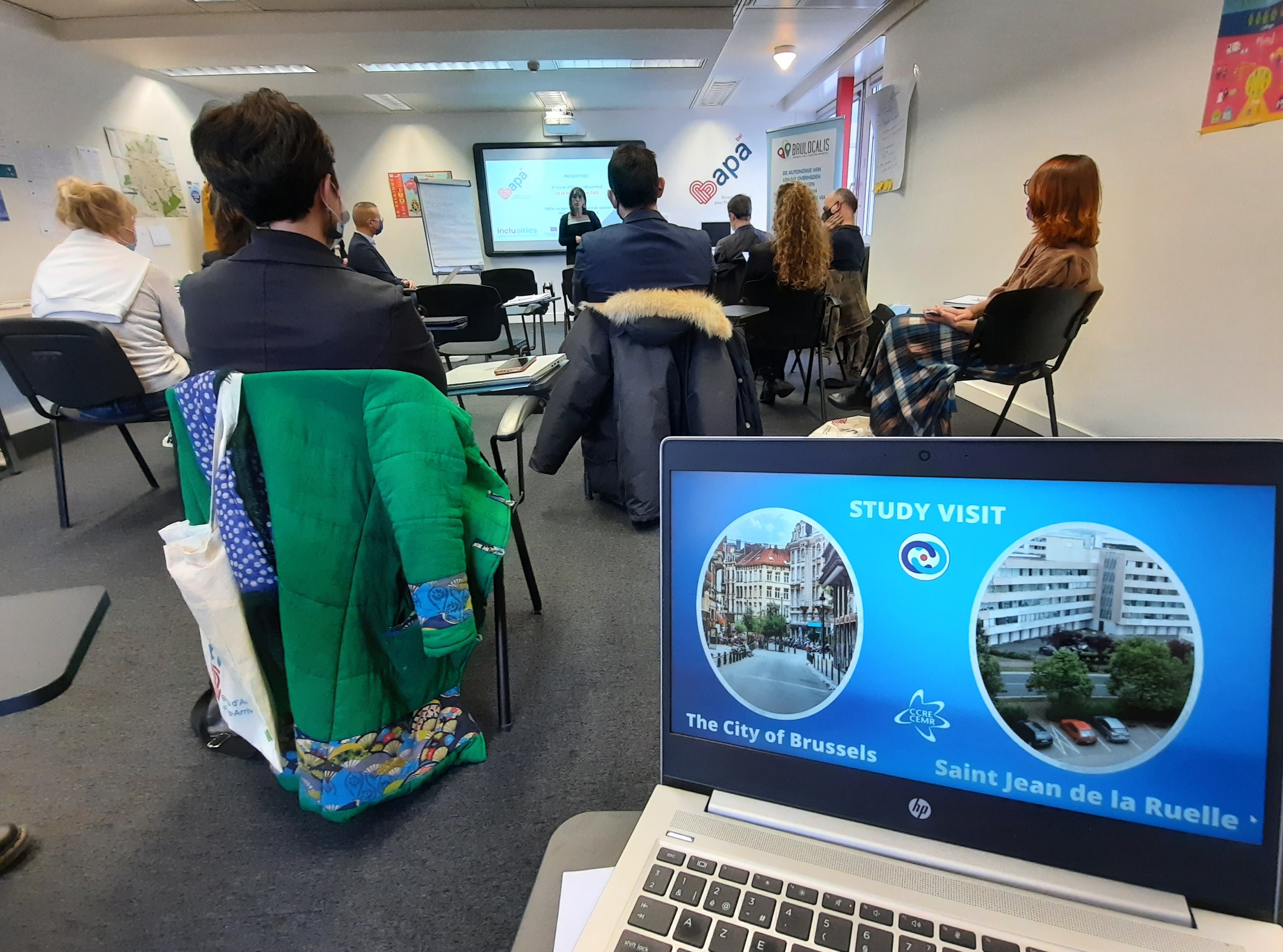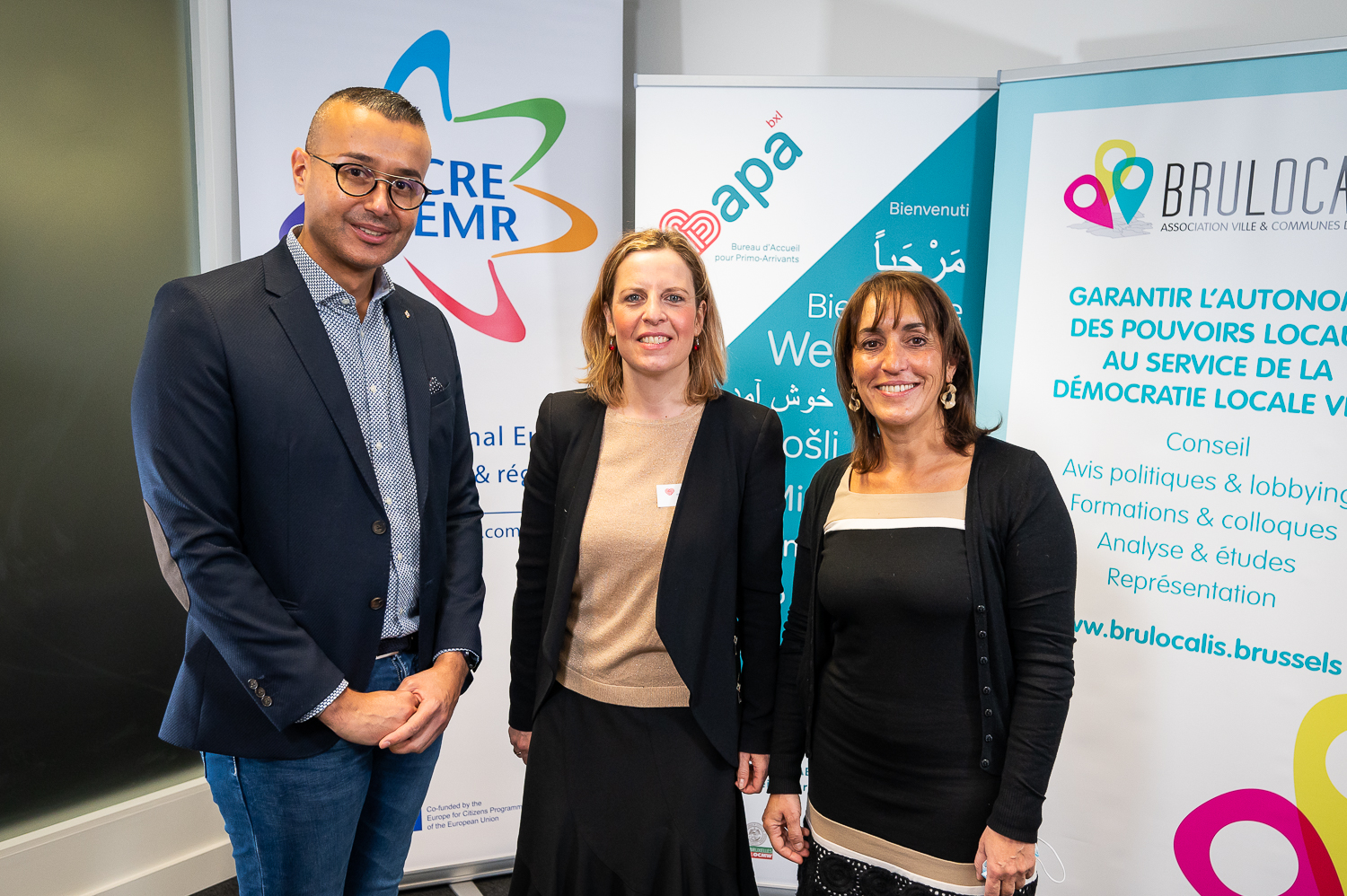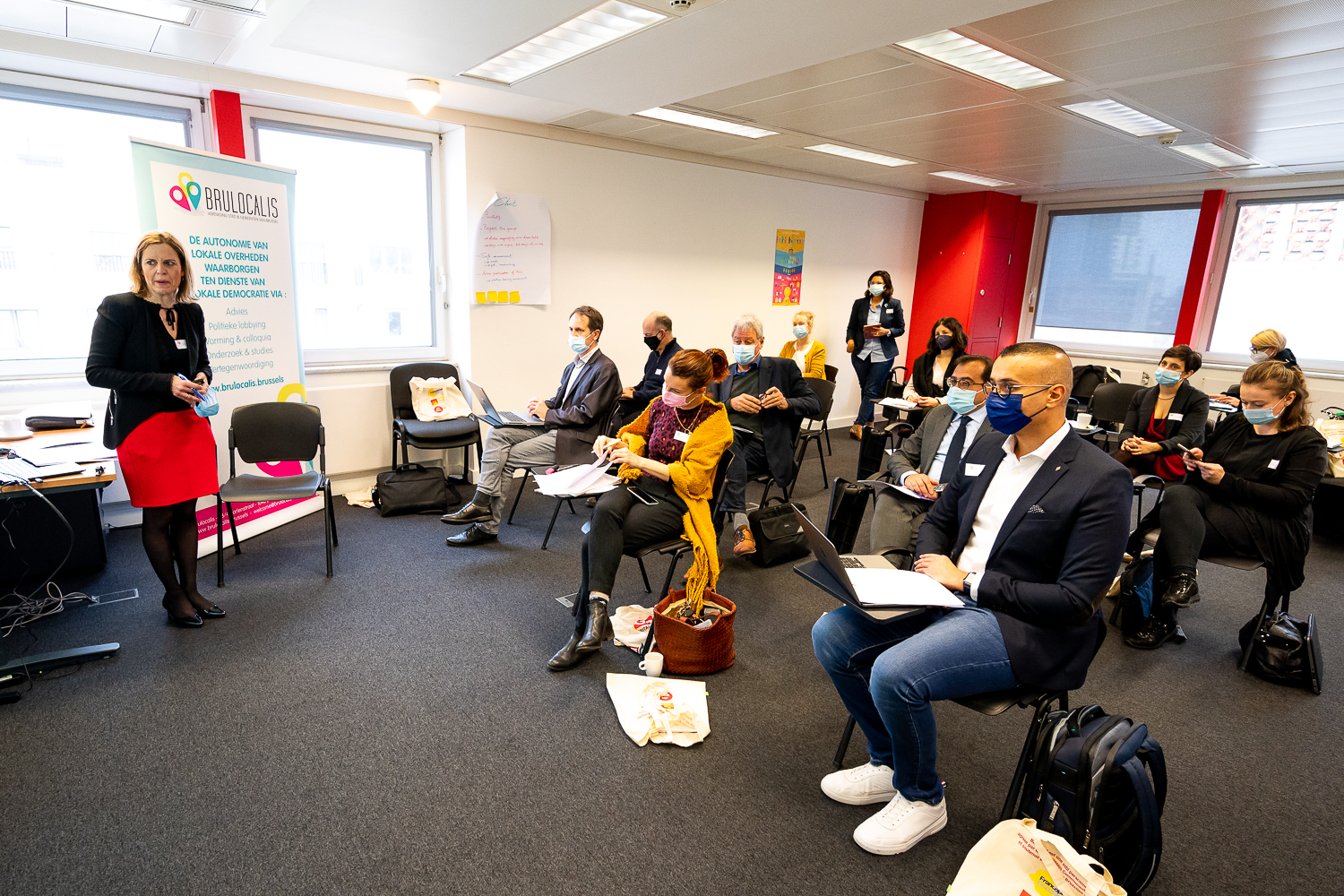IncluCities Study visit in the City Brussels



Faouzia Hariche, Alderwoman City of Brussels, Responsible for Public Education, Youth and Human Resources; Fabien Rivière-Dasilva, Deputy Mayor of Saint Jean de la Ruelle, Responsible for solidarity; Christelle Sermon, Director BAPA BXL
Press release (pdf)
City-to-city collaboration to improve migrant integration:
City of Brussels & Saint jean de la Ruelle
26 November 2021, Brussels
On 25 and 26 November the City of Brussels and the association of the City and municipalities of Brussels (BRULOCALIS) hosted Saint Jean de la Ruelle, a municipality in the Loiret department in the administrative region of Centre-Val de Loire, France. Following the theme on how to meet the needs of the migrant population with a gender-sensitive response, the City of Brussels shared their best practices with a special focus on BAPA BXL - The Reception Office for the Newcomers in Brussels.
“Cities affected by significant migratory arrivals face the same challenges of welcoming and integrating migrants. The Brussels Region welcomes more than 100,000 new arrivals, which is 10% of its population and is home to more than 180 different nationalities. Its role as a place of asylum has been developed over time and is illustrated today by a series of concrete actions, good practices which can be shared with others. It is important that cities exchange their visions, tools and advice to move the model of inclusion forward. This kind of knowledge transfer is very valuable,” declared Faouzia HARICHE, Alderman at the City of Brussels in charge of Public Education, Youth and Human Resources and President of BAPA BXL, the reception office for newcomers.
Over the past decade, thousands of migrants and asylum seekers have come to Europe in search of a better life. However, integrating the new arrivals has presented a challenge for many EU countries, in particular for small and medium-sized cities on the front lines of migration. Despite anxieties and fear-driven populism rising across Europe, we have also seen increasing solidarity among citizens and local communities in responding to the needs of new arrivals. This shows that local and regional authorities are those who play a paramount role in facilitating migrant integration on the ground. Unfortunately, they frequently lack adequate support for these actions.
To bridge this gap, the Council of European Municipalities and Regions (CEMR), together with eight cities and seven national associations of local and regional governments set up IncluCities, a three-year project led by CEMR and funded by the EU’s Asylum, Migration and Integration Fund (AMIF). Among the cities participating in the project are the City of Brussels and Schaerbeek from the Brussels-Capital Region, offering their knowledge and experience in migrant integration to inspire and guide two other European cities, with support of the Migration Work.
IncluCities mentoring is a process based on the exchange of best practices and transfer of knowledge. The mentor city supports the mentee city, with help of associations of local and regional governments, to encourage actions towards improvement or concrete change in migrant integration practices. This collaboration is based on listening and learning, in order to allow the mentee city to develop ideas, identify options for change and plan necessary actions.
The IncluCities partners, the City of Brussels (Mentor) and the city of Saint Jean de la Ruelle (Mentee), respectively supported by BRULOCALIS and AFCCRE (French Association of the Council of Municipalities and Regions of Europe), were associated in a tandem to work on a specific theme: Strategic assessment of the needs of migrants in Saint Jean de la Ruelle and developing an appropriate gender-sensitive response, with the objective to improve reception, access to basic services and participation in local life of migrants residing in the concrete territory.
It is in this context the City of Brussels welcomed Saint Jean de la Ruelle, during their second study visit on November 25 and 26 in order to share its experiences, good practices, projects and concrete actions implemented by its reception office for newcomers, BAPA BXL. Various city services were presented during this study visit, including associative partners in terms of reception, participation in local life, welcoming newcomers and migrants in the city of Brussels. During these two days, a significant attention was dedicated to the gender dimension of migrant reception, and to projects related to women participation.
The mentoring program in the framework of IncluCities will allow Saint-Jean-de-la-Ruelle to study the best practice from the City of Brussels and adjust it into their local context. The aim is to produce an action plan with a strategic assessment of the needs of migrants in their city and to develop an appropriate, gender-sensitive response to improve in a long-term reception, access to basic services and participation in local life for migrants residing in its territory.
"I am convinced that local authorities have the responsibility to help with the challenge of welcoming migrants. We also need to share our experiences at the European level, as we are doing within the framework of IncluCities”, Indicated Christophe CHAILLOU, Mayor of Saint-Jean-de-la-Ruelle and Director of AFCCRE.
For any communication related requests, please contact IncluCities Communication Officer Barbara Kuznik This email address is being protected from spambots. You need JavaScript enabled to view it. or IncluCities Coordinator, Maria Grazia Montella This email address is being protected from spambots. You need JavaScript enabled to view it..
To learn more about this mentoring pair and the study visit in Brussels, you can watch the YouTube video produced by BRULOCALIS (below). For more information, follow the IncluCities on social media (IncluCities Facebook page, @InclucitiesEU).